Are you a director or project manager in industrial construction constantly seeking innovative, cost-effective, and durable materials? Imagine a metal that streamlines your projects, enhances safety, and contributes to aesthetically pleasing structures. ADC12 aluminum might be the solution you’ve been searching for. This article unveils the remarkable properties, diverse applications, and crucial sourcing and processing considerations of ADC12 aluminum, empowering you to make informed decisions for your next industrial construction venture.
Understanding the Properties of ADC12 Aluminum
ADC12 aluminum, a widely used alloy in the die-casting industry, is renowned for its excellent mechanical properties and versatility. This alloy primarily consists of aluminum, silicon, and small amounts of copper, magnesium, and other elements. The unique chemical composition of ADC12 contributes to its high strength-to-weight ratio, making it an ideal choice for various applications in industrial construction, automotive parts, and electronic housings.
Chemical Composition and its Impact on Performance
The chemical composition of ADC12 typically includes approximately 11-13% silicon and 0.5-1.5% copper. This specific blend enhances the alloy’s fluidity during casting, allowing for intricate designs and reducing the likelihood of defects during production.
The presence of silicon improves wear resistance and reduces thermal expansion, which is crucial for maintaining dimensional stability in finished products. Understanding these chemical properties is essential for project managers seeking to optimize material selection for construction projects.
Mechanical Properties
ADC12 aluminum boasts impressive mechanical properties, including a tensile strength ranging from 240 to 300 MPa and a yield strength of about 150 MPa. These characteristics make it suitable for load-bearing applications without compromising structural integrity.
Additionally, the alloy exhibits good elongation properties, allowing it to withstand deformation without breaking. For directors overseeing industrial projects, these mechanical attributes translate into reliable performance under varying operational conditions.
Physical Properties
In terms of physical properties, ADC12 has a density of approximately 2.7 g/cm³ and a melting point around 580-610°C. Its low density contributes to weight savings in construction applications, while the melting point allows for efficient processing during manufacturing.
The alloy’s thermal conductivity is also noteworthy, facilitating heat dissipation in electronic components and automotive applications.
Comparison with Similar Die Casting Alloys like A380
When comparing ADC12 with other die-casting alloys such as A380, several factors come into play. While A380 offers superior corrosion resistance and higher tensile strength, ADC12 is often favored for its cost-effectiveness and ease of machining.
For project managers focused on budget optimization without sacrificing quality, ADC12 presents a compelling option.
Sourcing ADC12 Aluminum
Finding reliable suppliers for ADC12 aluminum is crucial for ensuring timely project completion and maintaining quality standards.
Key Considerations When Choosing a Supplier
When selecting a supplier for ADC12 aluminum, consider factors such as pricing, delivery timelines, and quality certifications. It’s essential to partner with suppliers who have a proven track record in the industry and can provide competitive pricing without compromising on quality.
Identifying Reputable Suppliers in Different Regions
Reputable suppliers can be found globally; however, regions such as China and India are notable for their extensive manufacturing capabilities in aluminum alloys. Companies like AKG Exim in India and various manufacturers in China offer competitive pricing along with quality assurance certifications like ISO 9001.
Understanding Certifications and Quality Standards
Ensuring that suppliers adhere to international quality standards is paramount. Look for certifications such as ISO 9001 or IATF16949 to guarantee that the materials meet stringent quality requirements. This diligence not only ensures compliance but also enhances trust in the supplier’s capabilities.
Read more Blog & New:
Exploring the Applications of ADC12 Aluminum
ADC12 aluminum’s versatility makes it suitable for various applications across different industries.
Automotive Parts
In the automotive sector, ADC12 is commonly used for manufacturing engine blocks, transmission cases, and other critical components due to its lightweight nature and strength. This application helps improve fuel efficiency while ensuring durability.
Electronic Housings
The alloy’s excellent thermal conductivity makes it ideal for electronic housings where heat dissipation is crucial. By utilizing ADC12 aluminum in these applications, manufacturers can enhance product performance while maintaining aesthetic appeal.
Other Industrial and Consumer Applications
Beyond automotive and electronics, ADC12 finds use in consumer goods such as kitchen utensils and industrial machinery components. Its adaptability allows it to meet diverse design requirements while ensuring longevity.
Machining and Processing ADC12 Aluminum Castings
Successful machining of ADC12 aluminum requires understanding its machinability characteristics.
Machinability
ADC12 exhibits good machinability due to its fine grain structure resulting from the casting process. This property allows for efficient cutting operations with minimal tool wear.
Recommended Machining Practices and Tooling
For optimal results when machining ADC12 aluminum, use high-speed steel or carbide tools with appropriate cutting speeds and feeds tailored to the material’s properties. Implementing coolant during machining can further enhance surface finish and tool life.
Heat Treatment Options for Enhanced Performance
Heat treatment processes such as solution treatment followed by aging can significantly improve the mechanical properties of ADC12 aluminum. These treatments enhance strength while maintaining ductility—a crucial consideration for load-bearing applications.
Ensuring Quality and Addressing Potential Challenges
Maintaining high-quality standards throughout the production process is essential for successful project outcomes.
Quality Control Measures and Testing Procedures
Implementing rigorous quality control measures at every stage—from sourcing raw materials to final product inspection—is vital. Employing non-destructive testing methods can help identify potential defects early in the process.
Common Defects and Troubleshooting
Common defects associated with ADC12 aluminum castings include porosity and shrinkage cavities. Understanding these issues enables project managers to implement corrective actions proactively, ensuring high-quality outputs.
Corrosion Resistance and Mitigation Strategies
While ADC12 offers decent corrosion resistance due to its aluminum base, additional protective coatings may be necessary depending on environmental exposure conditions. Utilizing anodizing or powder coating can enhance durability against corrosive elements.
To explore more about how Cozydoor can assist you in sourcing high-quality ADC12 aluminum at competitive prices while meeting your project deadlines, please fill out our contact form today! Our team is ready to provide tailored advice that ensures your projects succeed while optimizing costs effectively.


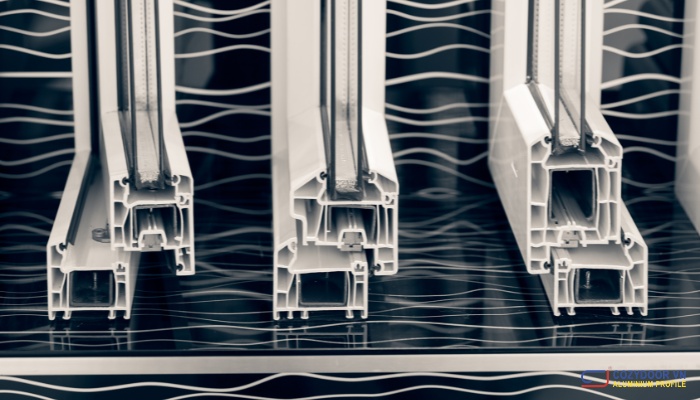
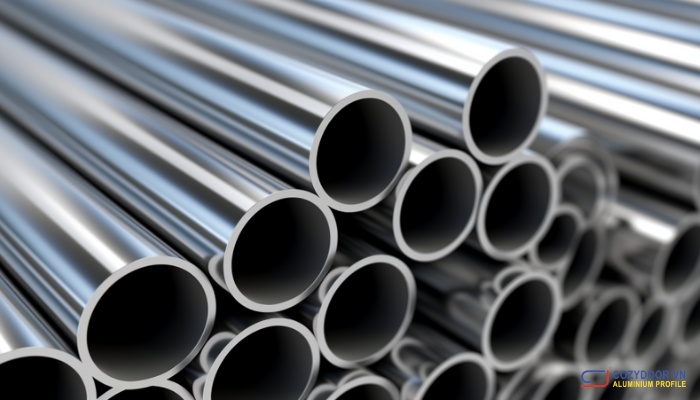
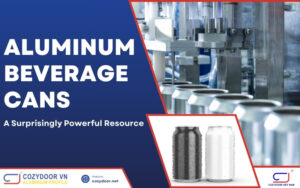
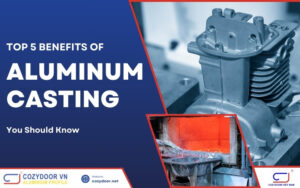
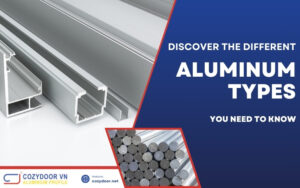
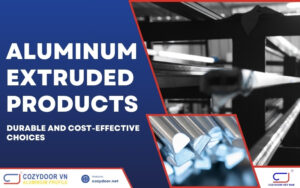
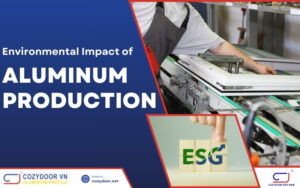
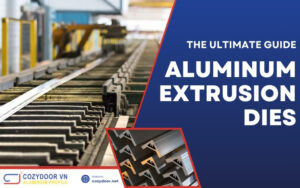
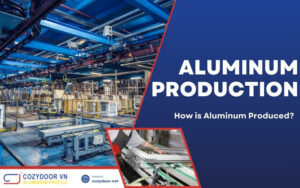
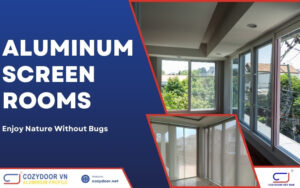
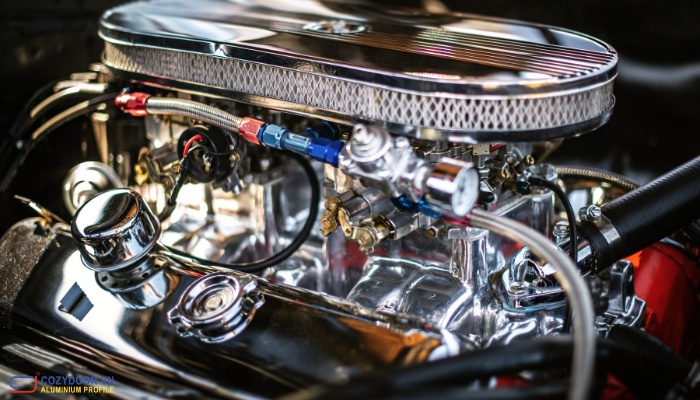
Electrical Resistivity of Aluminum – Innovative Solutions
Are you tired of costly design overruns and unpredictable material [...]
Nov
Mastering the Conductivity of Al for Optimal Project Success
One key factor often overlooked is the strategic selection of [...]
Nov
How is Aluminum Produced? Aluminum Production
Aluminum isn’t simply dug out of the ground like gold. [...]
Nov
Discover the Different Aluminum Types You Need to Know
Are you tired of the same old materials? Ready to [...]
Nov
Is Aluminum a Metal? Unlocking its Potential for Modern Construction
Aluminum’s remarkable properties have revolutionized industries, and its impact on [...]
Nov
Top 5 Benefits of Aluminum Casting You Should Know
Are you a construction project manager seeking to revolutionize your [...]
Nov
Learn About the Types of Extruded Aluminum and Their Benefits
Are you a construction project manager constantly juggling tight deadlines, [...]
Nov
The Amazing Strength of Aluminum: What You Need to Know
At Cozydoor, we understand the challenges you face in delivering [...]
Nov